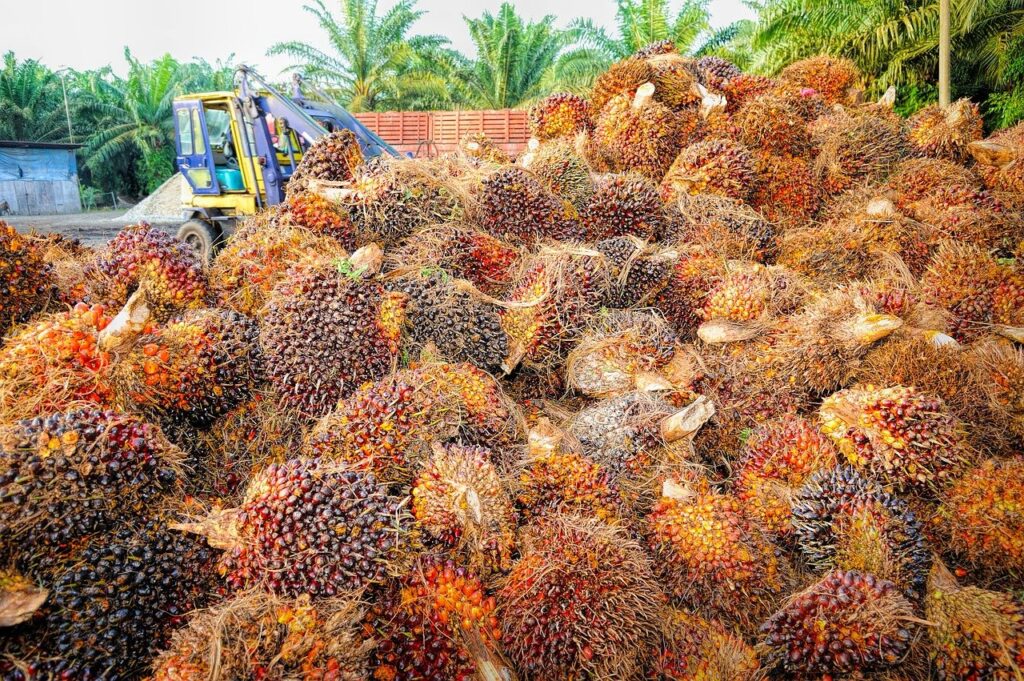Being the largest importer of palm oil, it costs India millions to import palm oil annually, hence a decision to grow the crops of palm oil within the country has been taken. But does the government think that growing this crop in the heartland of biodiversity of North-East India and the Andamans would cost nothing in terms of the ecology?

This destructive decision under the scheme National Edible Oil Mission-Oil Palm (NMEO-OP) with an approximate investment of Rs 11,000 crore was recently announced by the Prime minister on Independence Day.
This decision comes into light after the UN announced a red alert for humanity as the organisation appealed to the nations to take rapid measures to curtail the release of cumulative carbon dioxide, methane and other greenhouse gas emissions. And somehow the timing of the above mission does not sit right. And this is just an added problem in the grand scheme of factors attributing to climate change.

The palm oil crop is regarded to fetch highest returns amongst edible oils while being grown on a significantly less area than the others. As a matter of fact, it utilises comparatively reduced quantities of fertilisers and pesticides. This is what makes it cost effective for the producers, ensuing a greater demand, hence the market for it is escalating as it is also used in numerous products ranging from soaps, cosmetics, medicines, biofuel and processed food items.
In a bid to become ‘Atma nirbhar’, the self-sustenance characteristics of this biodiversity poses a threat to the livelihood and tenure of the tribal community who have depended on it for generations. These people have helped conserve the integrity of these ecosystems for the longest time, but now their home is being endangered due to capitalism. Thus, further the government expands the land for cultivation, more intense would become the decrement of the forest cover. The Jhum cultivation that was earlier benefiting the forest cover in terms of tree density and was an abode to multiple species of birds is now subjected to the menace that this monoculture plantation would likely cause. Being a cheaper alternative to other oilseeds, palm oil’s residual disposal is indeed questionable. After the fruit is sterilised, and the oil is extracted by pressing it in the mills, the residue is simply either unloaded in the water bodies-without being properly treated, or burnt, thus the waste lays there, emitting dangerous amounts of methane and carbon dioxide into the atmosphere.

So, increasing the number of plantations and the subsequent industries also means that global carbon emissions will substantially surge and thereby feed the industries with profits, people with products, and the environment with pollution. As a result, this crop’s wide cultivation is receiving a major backlash from the environmentalists.
However, the state’s agricultural department is an ardent supporter of this decision as they feel this would directly benefit the farmers. Having said that, in reality, the farmers would also be the ones to bear the damages irrespective of the promises being made to them. Palm oil crops have a longer gestation period of about 5 to 7 years. This means that the farmer can only sit and hope for the prospect of a profitable and a healthy crop while his investment is in jeopardy. An additional problem with the cultivation is the increased water requirement of this crop which would ultimately affect the already pervasive shortage of groundwater and its consequent pollution as the crop entails chemical aids for a better yield. On the other hand, watershed areas preserved by the tribal communities would probably be lost to irrigation of this crop. Furthermore, the farmers with inadequate ownership of the land unsuitable for this type of farming, would also have to face the perils of scanty incomes associated with it. Therefore, the promises that are being accrued to the cultivation are contrary to reality.

Other than the farmers, the initial introduction of a changed land use policy in Mizoram failed to be inclusive of the land rights of women as well. They were put at risk because the hold of the private sector became stronger and they handed over the land ownership to the men which in turn affected the livelihood of the women.
Also, as per Roundtable on Sustainable Palm Oil, the companies need to commit themselves to sustainably grow this crop keeping in mind the community directly affected by it and the overall environment being safeguarded.

The aforementioned issues will consequently lead to the social consequences of inequality of social groups (in this case the tribals) who are often left out of major decision making orbiting their purview. As far as the farmers are concerned, even though the government has ensured to generate effective interventions for the them associated with the material, cost, assistance for cultivation, tools, machinery, infrastructure and training: the well being of the ecology is still not certain and it will be an impairment for all the living sustained by it. It is the well-being of nature that would have to pay the hefty price.
Currently a student teacher who is always looking out for opportunities that challenges her ideals and makes her question her stance on variety of issues.


Link exchange is nothing else however it is only placing the other person’s web site link
on your page at appropriate place and other person will also do same in support of you.